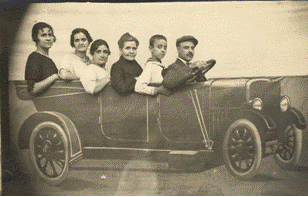Introduction
Translator, essayist, poet and playwright, Alfred Badia's best-known legacy is his poetic translations of troubadours' compositions (1982, 1988), perfectly suited for singing in modern Catalan, and of Rainer Maria Rilke's Els Sonets a Orfeu (Sonnets to Orpheus) (1979). As an original author, at least a couple of his published poetry books deserve to be repositioned in the Catalan literary arena: namely, Presó de cendra (Prison of Ash) (1976) and Adés era l'alba (Then It Was Dawn) (1990).
Badia (Barcelona, 1912 - 1994) worked as a secondary education teacher in public schools until he entered the Hispanic Philology Department of the Autonomous University of Barcelona where he lectured on Catalan language (1970 — 1977). In 1948, he earned his Philosophy degree in the University of Barcelona with Pere Font and Tomàs Carreras Artau as professors. On the other hand, he was self taught in linguistic and literary matters as a youth, while simultaneously engaged in several occupations to make ends meet. In 1937, despite the devastating impact of the Spanish Civil War, he managed to undertake a course on Catalan Normative Grammar with Pompeu Fabra.
In addition to his literary and teaching career, Alfred Badia's dedication to critical philosophy made him, as he himself put it, a "researcher of certainties". His original thinking can be traced in the collection of essays Crítica, somni, projecte, recerca (Critique, Dream, Project, Research) (1988) and in a paper published in the Anuari de la Societat Catalana de Filosofia (Annals of the Catalan Society of Philosophy) of the IEC (1994). Keenly interested in the literary and cultural events that surrounded him, he expressed himself in numerous articles, upon the freeing of the Catalan press — notably in the disappeared Diari de Barcelona, from 1989 to 1992. He wrote about politics, about actual Catalan usage, and more frequently, about the philosophical output of his contemporary Catalan thinkers, associated with the Col·legi de Filosofia. Badia's tone is an incisive and polemic one coming out of his personal search for truth and unyielding pro-Catalan activism, forged in the thirties. He also wrote on commission about the history of Catalan thought and about 20th century literary figures. He was awarded the Saint George's Cross, an honour given by the Catalan Government, on the 27th of April, 1993.
